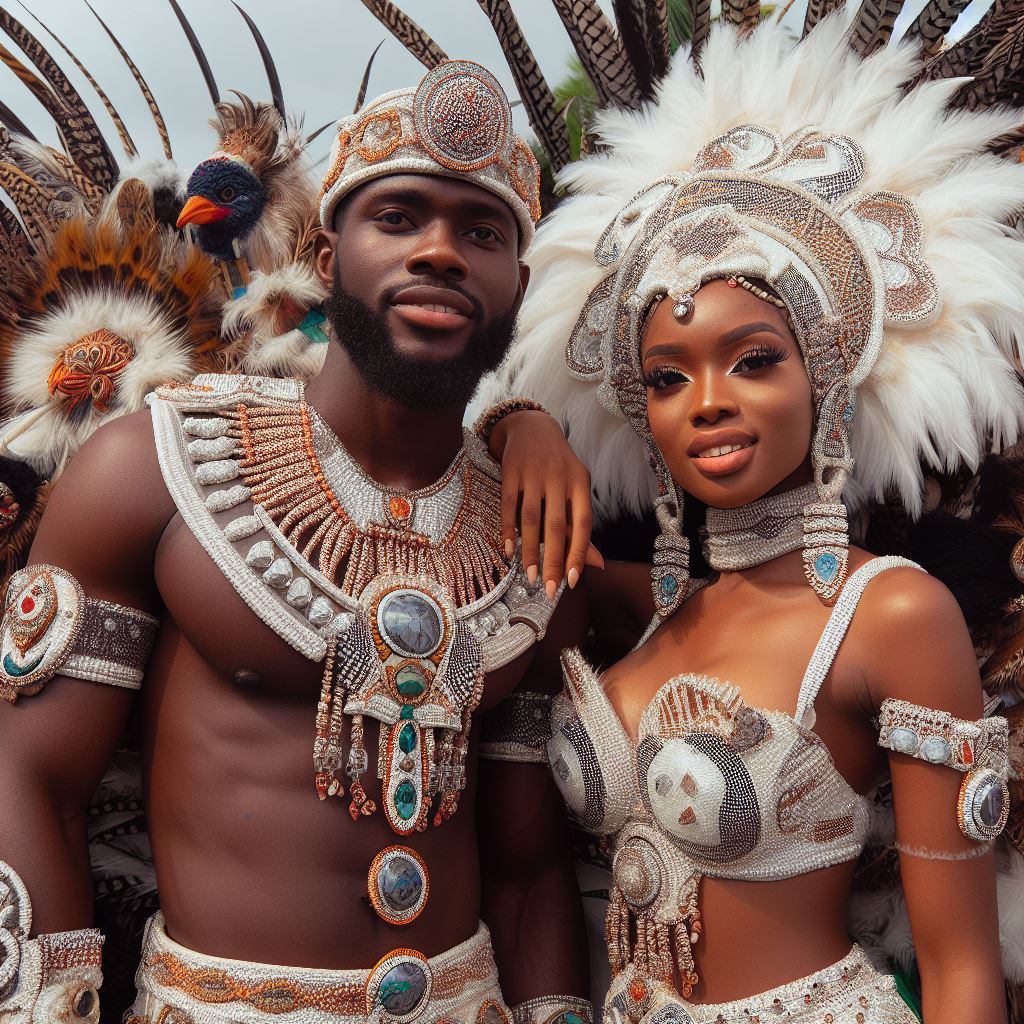Introduction
Definition of marriage registration in Nigeria
Marriage registration is a crucial aspect of the legal system in Nigeria. It refers to the process of documenting marriages in the country.
By registering their marriage, couples establish their legal status as husband and wife, which brings various benefits and protections.
Importance of marriage registration
- Marriage registration is important as it provides legal recognition and protection to married couples.
- Marriage registration provides legal recognition to the union, ensuring that it is valid and legally binding.
- This recognition is essential for couples to enjoy legal benefits such as inheritance rights, access to spousal medical benefits, and the ability to make important decisions on behalf of each other.
- Additionally, marriage registration offers protection to spouses in cases of disputes or dissolution of the marriage.
- Registered marriages are more likely to be acknowledged and upheld by the legal system, ensuring that both parties are protected, and their rights are respected.
- Furthermore, marriage registration is a means of keeping records and statistics on marriages in Nigeria. This helps in population census, planning social welfare programs, and studying demographic trends.
- Witnesses play a significant role in the marriage registration process. They are individuals who are present during the marriage ceremony and sign as witnesses on the marriage certificate.
- Their presence ensures that the marriage is not a sham and provides verification of the couple’s intent to marry.
Basically, marriage registration in Nigeria is a vital legal process that provides recognition, protection, and benefits to married couples.
Witnesses play an important role in ensuring the authenticity of the marriage and validating the intentions of the couple. This registration process contributes to the overall functioning of the legal system and society as a whole.
Nigerian Marriage Registration Process
- Marriage registration in Nigeria is a legal requirement for all couples who wish to formalize their union.
- The process involves fulfilling specific requirements and relies on the involvement of witnesses to validate the marriage.
Let us take a closer look at each aspect of the Nigerian marriage registration process.
Overview of the registration process
- Firstly, it is crucial to understand the overview of the registration process. In Nigeria, marriage registration is a legal obligation for couples who want their union to be recognized by the law.
- By registering their marriage, couples protect their rights and gain legal recognition as a married couple.
Requirements for marriage registration
Age
- Both individuals must be at least 18 years old to be eligible for marriage registration in Nigeria.
- To qualify for marriage registration, certain requirements must be met. Firstly, both individuals must be at least 18 years old.
- Age is a significant factor in determining the eligibility of the couple for marriage registration.
Consent
- The consent of both parties involved is crucial for the validity of the marriage. Additionally, the consent of both parties involved is essential.
- A marriage cannot be valid if one or both individuals do not provide their consent willingly.
Capacity
- Furthermore, capacity is another requirement for marriage registration. Both individuals must possess the mental and physical competence to enter into a marriage contract.
- This requirement ensures that individuals enter into marriage of their own free will and are capable of fulfilling the responsibilities that come with it.
Validity of marriage
The marriage must comply with the laws and regulations of Nigeria to be legally recognized.
Role of witnesses in marriage registration
Definition of witnesses
- One important aspect of marriage registration is the role of witnesses.
- Witnesses are individuals who observe the marriage ceremony and sign the marriage register as proof of its occurrence.
- They play a crucial role in validating the marriage by vouching for its authenticity and legality.
- Witnesses provide an unbiased account of the ceremony and confirm that all legal requirements have been met.
Purpose of witnesses
- Witnesses play a critical role in validating the marriage by attesting to its authenticity and legality.
- The purpose of having witnesses is to ensure the transparency and credibility of the marriage registration process.
- Their presence adds weight to the official documentation of the marriage and strengthens its legal standing.
- Moreover, witnesses provide an external validation of the union, adding an extra level of certainty to the proceedings.
Number of witnesses required.
- In Nigeria, the law mandates that a minimum of two witnesses must be present during the marriage registration process.
- These witnesses are required to sign the marriage register as proof of their presence and affirmation of the marriage’s legality.
- Their participation is vital in solidifying the validity and authenticity of the marriage.
In general, the Nigerian marriage registration process is a necessary step for couples wishing to legalize their union.
By meeting the requirements and involving witnesses, couples ensure the authenticity and legality of their marriage. Registration provides legal recognition and protects the rights of married couples in Nigeria.
Read: Songs, Quotes, and Messages: The Naija Anniversary Guide
Responsibilities of Witnesses in Nigerian Marriage Registration
A marriage ceremony is a special occasion that requires the presence of witnesses to validate the union.
In Nigerian marriage registration, witnesses play a crucial role in ensuring the legality and authenticity of the marriage. These witnesses have several essential responsibilities to fulfill.
Attending the marriage ceremony
Witnesses are required to be present at the marriage ceremony as a sign of their involvement and support. Their presence signifies that they acknowledge the legitimacy of the union and are willing to testify if needed.
Witnessing the exchange of vows
One of the primary responsibilities of witnesses is to witness the exchange of vows between the marrying couple. Their presence ensures that the vows are acknowledged and acknowledged by reliable individuals.
Signing the marriage register
Witnesses have the responsibility of signing the marriage register, which is an official document that records the details of the marriage.
By signing, witnesses certify that they were present during the ceremony and testify to its occurrence.
Providing identification documents
Witnesses must provide valid identification documents, such as their passports or driver’s licenses, to prove their identity and establish their credibility.
This verification process adds to the validity of the marriage registration.
Acting as proof of marriage ceremony
Witnesses serve as irrefutable proof that the marriage ceremony indeed took place. In the event of any disputes or legal complications, their testimonies can be presented to validate the legitimacy of the union.
Legal obligations of witnesses
Witnesses hold legal obligations towards the marriage registration process. They are required to provide honest and accurate information, ensuring the authenticity and legality of the marriage.
Generally, witnesses in Nigerian marriage registration play a vital role in ensuring the validity and legality of the union.
Their responsibilities include attending the marriage ceremony, witnessing the exchange of vows, signing the marriage register, providing identification documents, acting as proof of the ceremony, and fulfilling their legal obligations.
Without witnesses, the marriage registration process would lack the essential elements needed to validate the union.
Read: The Best Adinkra Symbols to Add to Anniversary Messages

Qualifications of Witnesses in Nigerian Marriage Registration
Having witnesses play a crucial role in Nigerian marriage registration is an important aspect of the process.
They provide a level of verification and legitimacy to the marriage, ensuring that it is conducted according to legal requirements and procedures.
The qualifications of witness’s help maintain the integrity of the registration process and prevent abuses or fraudulent activities.
Age requirement for witnesses
- Witnesses must be at least 18 years old to participate in the marriage registration process.
- One of the essential qualifications for witnesses is the age requirement.
- This ensures that witnesses are mature enough to understand the solemnity and importance of the marriage ceremony and the legal implications it carries.
Relationship to the couple
- In addition to age, the relationship between the witnesses and the marrying couple is also significant.
- Witnesses should have a close bond with the couple, enabling them to provide an accurate account of the marriage ceremony.
- Family members, close friends, or colleagues who have a deep understanding of the couple’s relationship are often chosen as witnesses.
Citizenship or residency requirement
- Another qualification is citizenship or residency. Witnesses must be Nigerian citizens or legal residents to be eligible to witness the marriage registration.
- This requirement guarantees that witnesses have a vested interest in upholding the laws and regulations governing marriage in Nigeria.
Objectivity and impartiality of witnesses
- Furthermore, witnesses are expected to be objective and impartial. They should not have any personal interest or conflicts of interest in the marriage being registered.
- Objectivity ensures that witnesses provide an unbiased account of the marriage ceremony, which helps prevent any fraudulent activities or false registrations.
The role of witnesses in Nigerian marriage registration goes beyond just being present at the ceremony.
They serve as an integral part of the process, upholding the legal aspects and ensuring the validity and authenticity of the marriage.
By fulfilling the qualifications set forth, witnesses contribute to a transparent and credible marriage registration system.
In summary, the qualifications for witnesses in Nigerian marriage registration are essential in maintaining the authenticity and integrity of the process.
Age, relationship with the marrying couple, citizenship or residency, and objectivity are the key factors considered in selecting witnesses.
Their role is crucial in verifying the legality of the marriage and preventing fraudulent activities, ultimately preserving the sanctity of marriage under Nigerian law.
Read: Blending Cultures: Inter-tribal Anniversary Greetings in Nigeria
Implications of Witnesses in Nigerian Marriage Registration
Ensuring the legality of the marriage
Witnesses play a crucial role in Nigerian marriage registration as they help ensure the legality of the union.
- Validation of the marriage: Witnesses verify that the couple willingly and legally enters into marriage.
- Compliance with regulations: Witnesses ensure that the marriage conforms to the laws and regulations of the Nigerian government.
- Presence during the ceremony: Witnesses must be physically present at the marriage ceremony to validate it.
Safeguarding against false or invalid marriages
By requiring witnesses, Nigerian marriage registration acts as a safeguard against false or invalid marriages.
- Preventing fraudulent marriages: Witnesses verify the identities and intentions of the individuals getting married.
- Protection against forced marriages: Witnesses can identify and report any coercion or pressure placed on the couple.
- Ensuring proper consent: Witnesses confirm that both parties are entering the marriage willingly and without any prohibited impediments.
Providing evidence of the ceremony and legality of marriage
Witnesses serve as crucial evidence of the ceremony and the legality of the marriage in Nigerian registration.
- Testimony in legal proceedings: Witnesses can testify in court or legal proceedings regarding the authenticity of the marriage.
- Authentication of documents: Witnesses can sign official documents to confirm the validity of the marriage.
- Confirmation of witnesses’ presence: Witnesses’ signatures in the marriage register serve as proof of their presence during the ceremony.
Assisting in case of disputes or legal issues
Witnesses provide essential assistance in case of disputes or legal issues that may arise after the marriage.
- Resolution of conflicts: Witnesses can provide relevant information or testimony to help resolve disputes between the couple.
- Verification of marriage details: Witnesses can help clarify any discrepancies or misunderstandings regarding the marriage.
- Support in legal proceedings: Witnesses may be called upon to testify or provide evidence in legal proceedings related to the marriage.
To summarize, witnesses in Nigerian marriage registration hold significant implications.
They ensure the legality of the marriage, safeguard against false or invalid marriages, provide evidence of the ceremony and legality, and assist in case of disputes or legal issues.
Their presence and participation are vital to the proper functioning of the marriage registration process in Nigeria.
Read: Understanding the Deep Roots of Marriage in Nigeria
Conclusion
In Nigerian marriage registration, witnesses play a crucial role in ensuring the validity and authenticity of the marriage.
Witnesses provide legal confirmation of the marriage by attesting to its occurrence and signing the marriage certificate.
Their presence adds credibility to the marriage and prevents any fraudulent or forced unions.
Couples should be encouraged to follow proper registration procedures.
- Couples should prioritize the involvement of witnesses in their marriage registration to protect their rights and uphold the law.
- By adhering to proper procedures, couples can ensure their marriage is legally recognized and enjoy the benefits that come with it.
- Overall, witnesses hold a significant role in Nigerian marriage registration. Their presence safeguards the integrity and legality of the marriage, providing couples with the necessary protection and benefits.
- It is essential for couples to follow proper registration procedures and not overlook the involvement of witnesses in their union.




